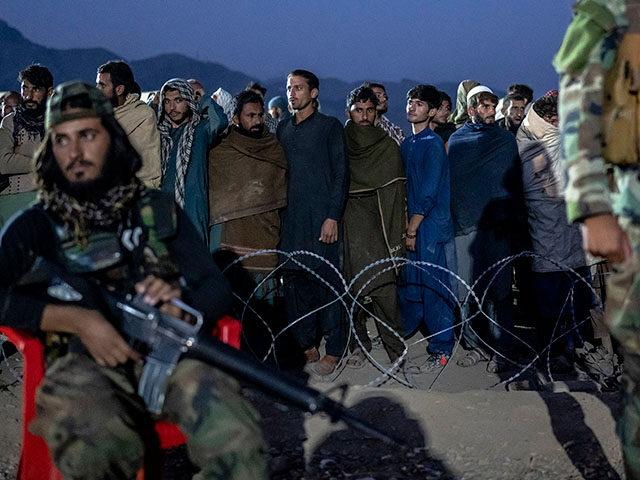Shawn VanDiver, president of an advocacy group called AfghanEvac, told Reuters on Tuesday that at least 130 Afghan refugees who were being processed for resettlement to the United States have been caught up in Pakistan’s massive deportation program and sent back to Taliban-controlled Afghanistan.
According to VanDiver and two “Western diplomatic sources” who spoke to Reuters anonymously, Pakistani police and local officials have sometimes ignored letters of protection written by the U.S. Embassy in Pakistan. Of 230 Afghans known to be holding those letters who were arrested for deportation, only 80 were subsequently released by Pakistani officials.
“The letters matter in some cases and not in others. Not all local officers are abiding by it,” VanDiver said.
The U.S. embassy wrote those letters in October after Pakistan set a November 1 deadline for the roughly 1.73 million Afghans illegally living on Pakistani soil to leave the country. Pakistan said refugees seeking resettlement in other countries could stay until December 31, a deadline later extended to the end of February 2024.
Pakistan said this sudden and massive deportation drive was made necessary by repeated terrorist attacks on Pakistani targets. Afghan nationals were involved in many of these attacks.
Pakistan has long harbored a large number of Afghan immigrants without proper documentation. Some of them lived in Pakistan for decades before the deportation order was issued, having fled Afghanistan during the Soviet invasion in the 1980s. Others were recent arrivals, fleeing their country after the brutal Taliban extremists returned to power in 2021.
An unnamed State Department official told Reuters that about 25,000 letters of protection were issued to Afghan refugees in Pakistan, informing Pakistani officials they were “in the U.S. resettlement pipeline.”
The official said the U.S. has “no formal way to track” these refugees, but believes the number deported back to Afghanistan thus far has been “very small.”
Reuters spoke with one refugee whose letter of protection was ignored by the police, who deported him along with his family because he could not afford to renew the one-year visa he was issued when he fled Afghanistan in 2022. The refugee worked for a women’s advocacy group before the fall of Kabul, so he fears the Taliban will treat him harshly.
“I have five children, have no house, I’m currently living in the home of one of my relatives. I can’t apply for a job here. I don’t know what to do,” said the man, who ended up in Kabul after Pakistan deported him.
Human rights groups say Pakistan’s deportation drive has been conducted in an abusive manner, with mass detentions, property seized or stolen, and vital documents destroyed. Some Afghan women say they have been sexually harassed by Pakistani police. Deportees were banned from carrying more than a small amount of cash, so they left most of their meager wealth behind in Pakistan and arrived in Afghanistan as paupers.
Pakistan’s deportation drive has been so fearsome that some Afghans with legal documentation reportedly left the country anyway, afraid they would be brutalized or herded into the unpleasant “deportation centers” constructed by Pakistan. Some Afghan immigrants with legal status have been targeted for deportation despite having residential papers.
Some analysts believe Pakistan made its deportation program especially large, and harsh, to put pressure on the Taliban. Pakistan wants the Taliban to crack down on terrorists launching operations into the border region from Afghan soil. The Taliban has been cool to these requests, dismissing Pakistan’s allegations of cross-border terrorism as insulting.

COMMENTS
Please let us know if you're having issues with commenting.